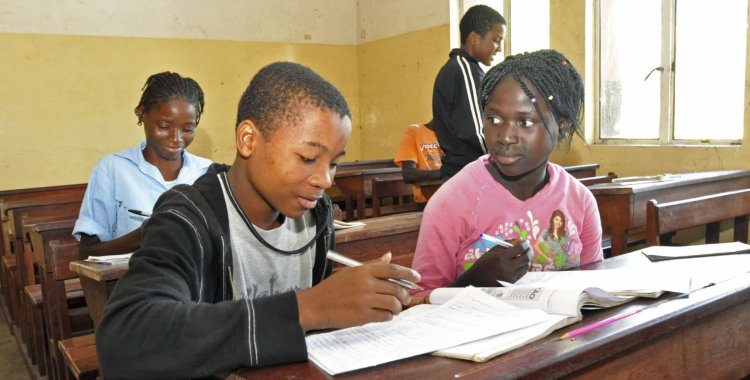In a note about the opening of the 2023/2024 academic year, which officially starts on September 1st, Sinprof said that the number of students outside the education system continues to grow "year after year", without education statistics "the be able to quantify."
"We can only wait for the general sense of the population expected for next year, so that the country can finally know how many Angolans are outside the education system", stated the note, which recognized "the quantitative and even qualitative leap, in which refers to the expansion of the school network" that the country has seen since the end of the war in 2002.
"However, the system's response is far from satisfying demand, if we take into account the galloping number of the student population at all levels", highlighted the document, in which teachers lament the fact that "school exclusion continues to gain ground".
According to Sinprof, the use of private educational institutions is no longer a privilege and has become a necessity, given the system's inability to absorb the student population in its current 8137 public schools.
"Even low-income populations are forced to enroll their children in private schools, where they are then expelled due to their parents' inability to continue paying their students' tuition fees", the note highlighted.
Sinprof considered that the Government should be ashamed "of the regrettable scenario" that Angolans witnessed in some public schools, "which had to resort to lottery of places, due to the inability to meet the demand".
"The luck of the draw has enrolled your child! This should worry us all, especially if we have to answer the question about the fate of children and young people who once again will not have access to school in the academic year that begins", highlighted the document .
The union organization also raised the need to address the issue of the legal maximum age limit for access to a certain level of education, "as late access to school is not always attributable to the candidates, but rather to the lack of sufficient public schools, which should lead authorities to rethink this limitation."
According to Sinprof, Angola currently has 103,599 classrooms, from a group of public (61 percent), public-private (33 percent) and private (6 percent) schools, grouped into 13,238 schools, according to data from provincial education offices or 10,084 schools, as released by the statistics department of the Ministry of Education.
"All in all, the country needs approximately twice as many classrooms as currently exist, if it wants to reduce the student-classroom ratio and solve the problem of school exclusion. For this to happen, the executive will have to build between 1500 and 2000 schools-year, over a five-year time horizon, with schools that meet the projection of population growth in the circumstances in which they are built", highlighted the statement.
The union understands that the 18,569 temporary rooms, as well as the 8077 improvised rooms, should be expanded and requalified, according to the provincial offices.
In terms of human resources, Sinprof is concerned about the reduced number of teachers, currently estimated at 216,000 agents, a workforce that needs to be increased by another 76,000, to reduce the teacher-student ratio and the fact that in many schools in the country if we continue to have teachers who cumulatively teach more than one class.
"Therefore, if the admission of new agents continues at the rate of 10,000 agents/year, it will be difficult for the country to solve the problem of the lack of teachers, due to the fact that every year we have many teachers who reach retirement age", which die or "some are fired for engaging in practices that do not support the exercise of the teaching profession", he noted.
With regard to teachers' demands, the note highlighted that so far the executive has not adopted the incentives for those working in remote areas, approved since March, stressing that "teachers will not wait much longer".
"Still at the level of demands, the Ministry of Education seems to be whistling along, given the resolution of the points contained in the list of demands, the understandings of which were reached on December 15, 2022 and January 31, 2023", said Sinprof.
The union expresses openness to cooperate in the correct application of public policies aimed at education, however, "it does not abdicate its role in demanding, being able to resort to the laws whenever circumstances suggest".







